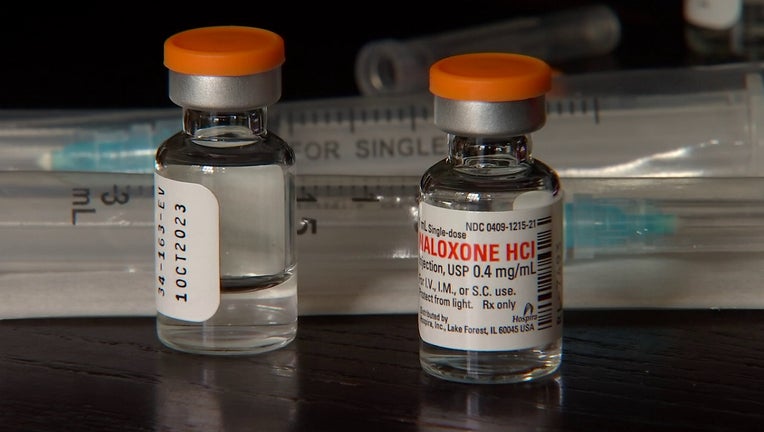BCA launches Minnesota Drug Crimes and Overdose Dashboard

Naloxone could help save someone experiencing an overdose (FOX 9)
ST. PAUL, Minn. (FOX 9) - The Minnesota Department of Public Safety Bureau of Criminal Apprehension (BCA) launched a new dashboard to help prevent and respond to drug overdoses, drug-related deaths and drug-related crimes.
Overdoses in the first half of 2023 where Naloxone was administered well outpaced the prior three years, including a 9.8% jump over 2022.
The Minnesota Drug Crimes and Overdose Dashboard contains data, tools for trend analysis and other information.
"We hope that making information about drug arrests, overdoses and deaths available in a single location will help law enforcement, medical service providers and others as they work to understand illicit drug use and its impact on our communities," BCA Superintendent Drew Evans said.
The BCA created the dashboard in partnership with the Minnesota Department of Health and the Emergency Medical Services Regulatory Board, both contribute data to the dashboard.
"While EMS data has been at the forefront of providing real-time intelligence to public health and public safety providers throughout the state, EMS data is not just numbers; but embodies the stories of real people, families, and communities affected by the opioid epidemic," said Dylan Ferguson, executive director of the EMS Regulatory Board. "It provides us with a unique lens into the challenges faced on the front lines and can help craft tailored strategies that make a difference."
Drug monitoring initiative
This dashboard is part of the BCA’s Drug Monitoring Initiative (DMI), an effort funded through a U.S. Department of Justice grant. Minnesota participates in the initiative to help the public better understand the patterns and threats of illicit drug use. The goal is to make more informed decisions about resources, prevention and enforcement efforts.
"This dashboard is a good example of the coordinated approach we’re taking in Minnesota," said Dr. Brooke Cunningham, Minnesota Commissioner of Health. "We’re more effective when we pull together all the public health, emergency response, and treatment data to address this epidemic of overdoses and one of our most urgent law enforcement and public health challenges."

